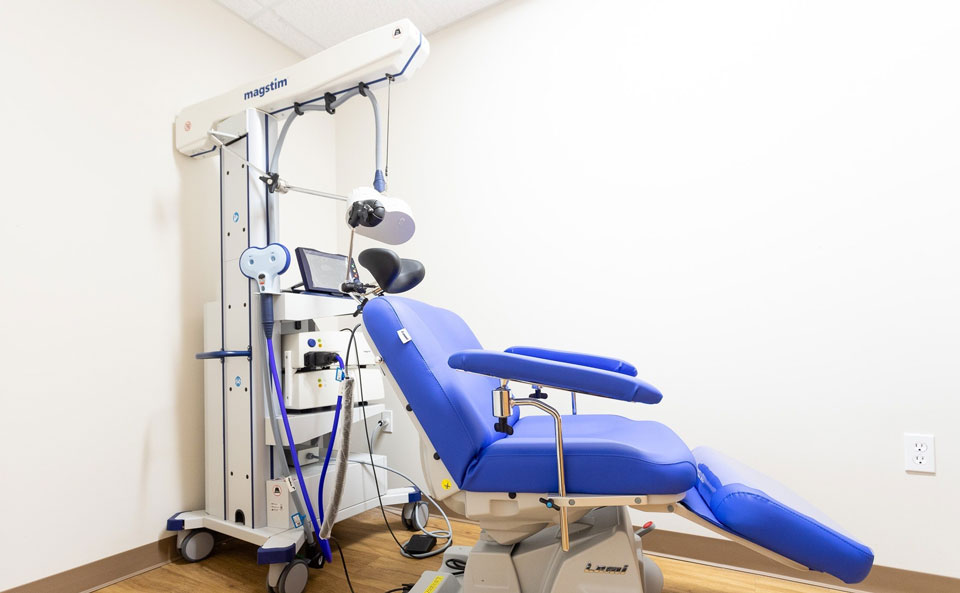TMS Therapy Vs. Esketamine: Which Is The Right Choice For Depression Treatment

Depression treatments have evolved significantly over the years, introducing innovative approaches that cater to varied patient needs. Two such treatments gaining traction are Transcranial Magnetic Stimulation (TMS) and esketamine. Both are novel, but when comparing TMS vs. esketamine, nuances in their methods, effectiveness, and target populations emerge. Let’s delve into each to ascertain which might be the right fit for those seeking optimal psychiatric care.
Transcranial Magnetic Stimulation (TMS): A Closer Look
TMS therapy is a non-invasive approach that makes use of magnetic fields targeting nerve cells within the brain. Typically reserved for individuals who haven’t benefited from traditional treatments, TMS has found its niche in addressing treatment-resistant depression.
- Method of Action: TMS operates by targeting specific areas of the brain involved in mood regulation. Using magnetic coils placed against the scalp, controlled magnetic pulses are sent, affecting brain activity.
- Effectiveness and Duration: Studies have demonstrated TMS’s efficacy in reducing depressive symptoms, with many individuals reporting improvement within a few weeks of starting therapy. However, the duration varies, with some needing extended sessions spanning several weeks.
- Potential Side Effects: While TMS is generally well-tolerated, some might experience headaches, lightheadedness, or scalp discomfort at the treatment site. It’s non-systemic, meaning it doesn’t have side effects seen in oral medications like weight gain or dry mouth.
Esketamine: The Revolutionary Nasal Spray
Derived from the anesthetic ketamine, esketamine has piqued interest due to its rapid effect on severe and treatment-resistant depression.
- Method of Action: Unlike many antidepressants targeting serotonin or norepinephrine, esketamine acts on the brain’s glutamate system, offering an alternative mechanism of mood modulation.
- Effectiveness and Duration: The buzz around esketamine often revolves around its speed. Some patients report mood improvement within hours to days post-administration, a stark contrast to traditional antidepressants that might take weeks.
- Potential Side Effects: Administered as a nasal spray under medical supervision, esketamine can lead to temporary side effects like dissociation, dizziness, or elevated blood pressure. Due to its rapid action, healthcare providers closely monitor patients following each dose to ensure safety.
Factors to Consider in the TMS vs. Esketamine Debate
- Nature of Depression: Both treatments shine in treating treatment-resistant depression. However, esketamine’s rapid action might make it a preferable choice for those in acute distress or at high risk of self-harm.
- Duration of Treatment: While esketamine shows rapid results, TMS offers a more prolonged treatment phase, which might be suitable for those seeking sustained intervention.
- Side Effects: TMS’s non-systemic nature means fewer overall side effects. However, esketamine, despite its side effects, remains a solid choice, especially when administered and monitored in a controlled setting.
- Convenience: Esketamine requires a controlled setting due to its immediate effects, which might be inconvenient for some. TMS, on the other hand, while also administered in a clinical setting, allows individuals to resume daily activities immediately post-session.
Making Informed Choices: TMS and Esketamine in Balance
The comparison of TMS vs. esketamine underlines the diverse pathways available in modern depression treatment. Each has its strengths, tailored to distinct patient needs and conditions. The choice isn’t about one being superior but about which aligns best with an individual’s unique therapeutic journey. Engaging with psychiatric professionals ensures a comprehensive understanding and selection of the best-suited treatment, paving the way for enhanced mental well-being.

